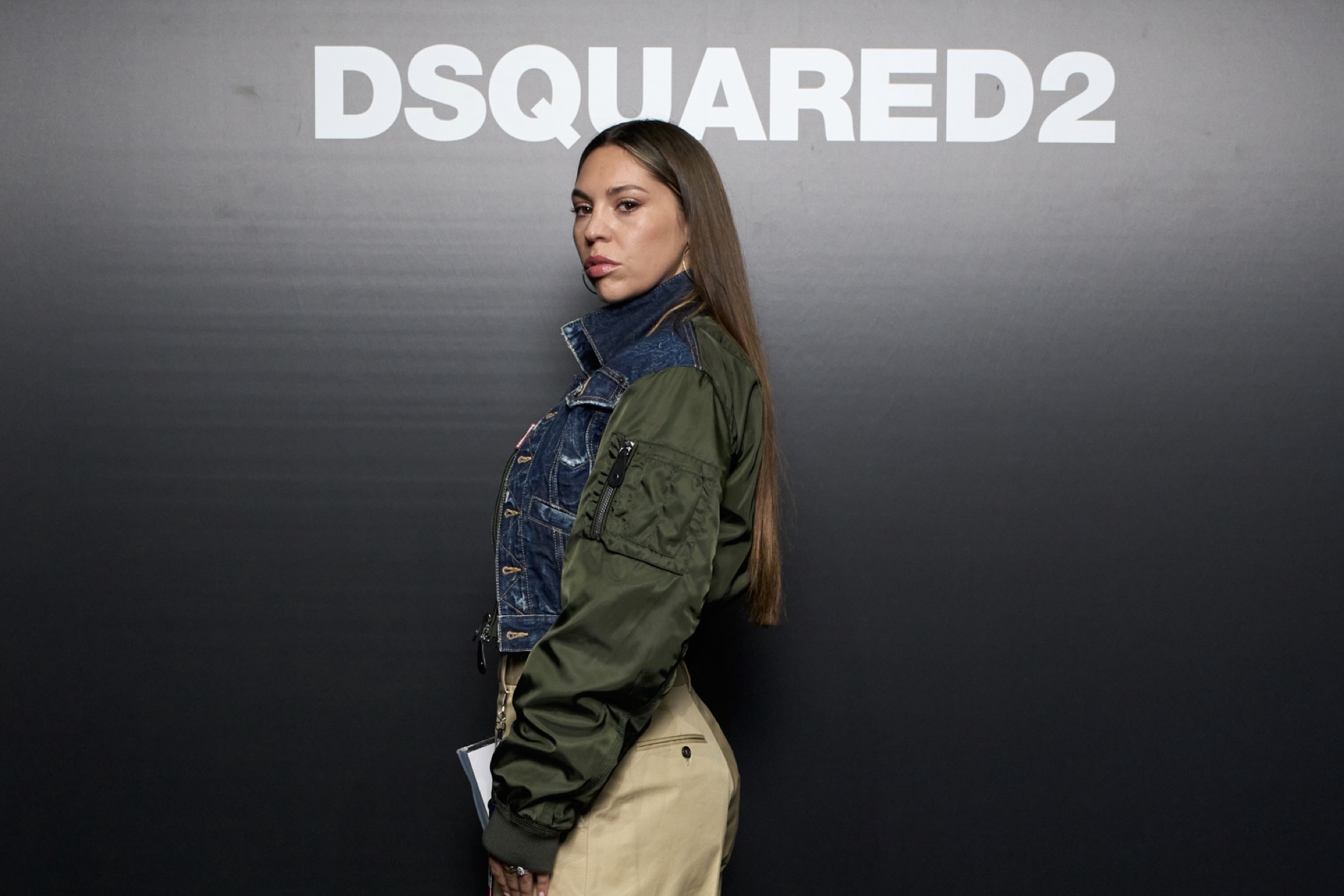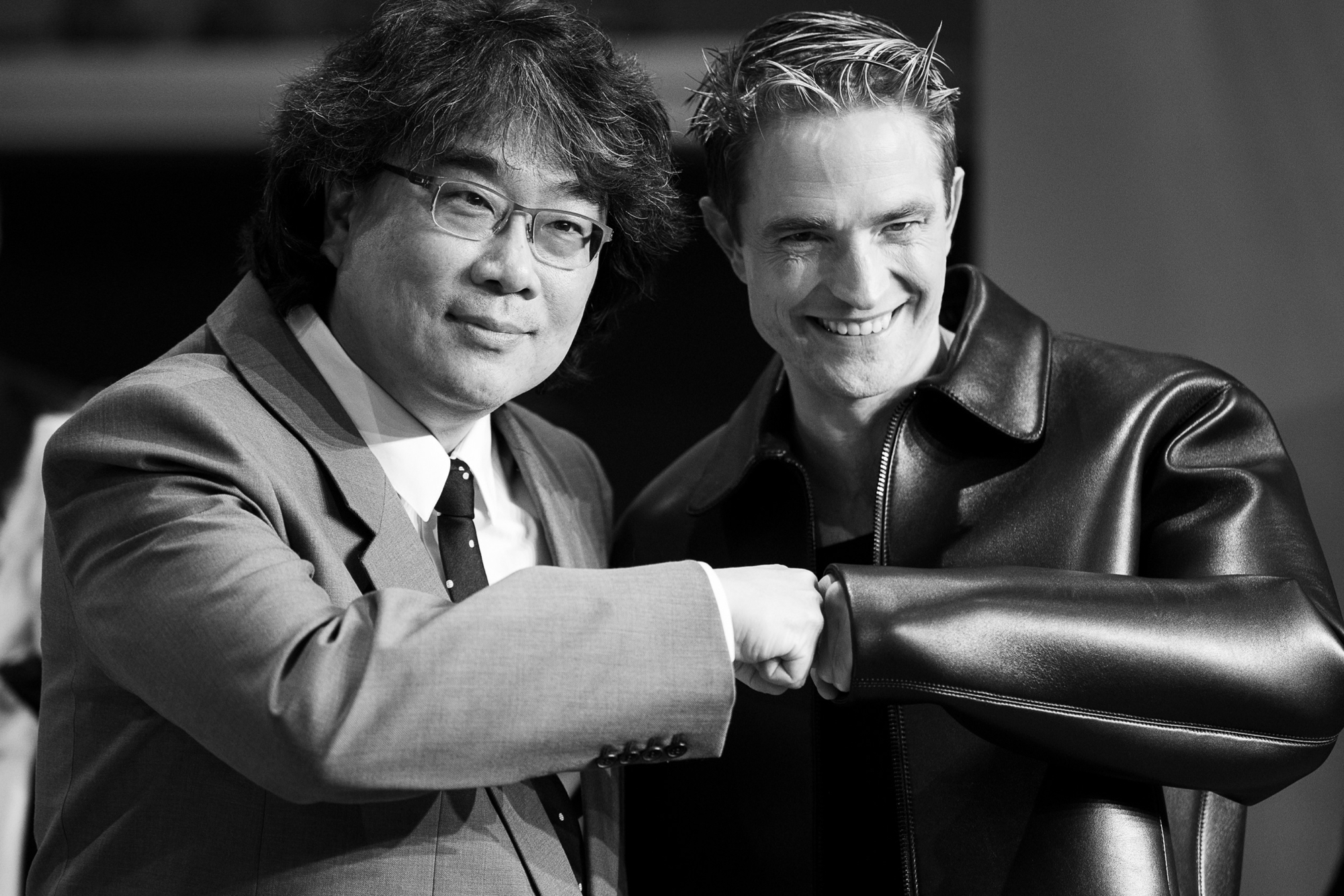Photography: Pedro Quintana @pequintana
Styling: Carla Cristallini @carlacristallini
Glam: Ginebra Caducada @ginebracaducada
Casting Director: Marcela Meignan @marcelamayorgameignan
Creative Production and Interview: Delfina Martínez Mendiberry @finita_
Location: Gilda Haus @gildahaus_
Nail art: Jonathan Coronado @filhodokoro
Special Thanks: Cristina Bonaga
Who is Bea Pelea in your own words?
A confident, strong, open-minded, independent, sexy, and romantic woman who does whatever she wants.
You’re from Málaga, but you’ve been surrounded by different cultures. How has that diversity shaped your artistic identity?
There are different opinions about roots. Right now, I’m living in Madrid, but Barcelona is my second home. I’ve always been surrounded by different cultures and have lived in various places. This makes me feel like I belong to many places at once, so when I compose or create a project, I flow and innovate naturally, feeling comfortable with different sounds and forms of expression.
Your father, Pablo Bicho, was a key figure in the rock scene of Coruña and later in Latin music. Did he influence your relationship with music in any way?
I didn’t grow up with him. I didn’t see him often, but whenever I did, I remember him playing, rehearsing, or working on something related to music. I love music, but I feel it’s something innate rather than something he directly influenced, except maybe genetically, if that plays a role. Curiously, our musical tastes are quite similar, except for reggaetón, which belongs to a different generation for him, although he can appreciate it and takes an interest. But we do share a deep love for salsa and flamenco.
What was teenage Bea like?
She was strong, brave, and sensitive, like my mother. I was obsessed with studying and securing a future where I could feel safe and at peace. That phase marked my life and, consequently, my career. It shaped both me and the more challenging aspects of my personality, which reflect in how I work and experience things. But I feel like I’m in a different place now, both in the moment and in how I see my career and want to approach it moving forward.
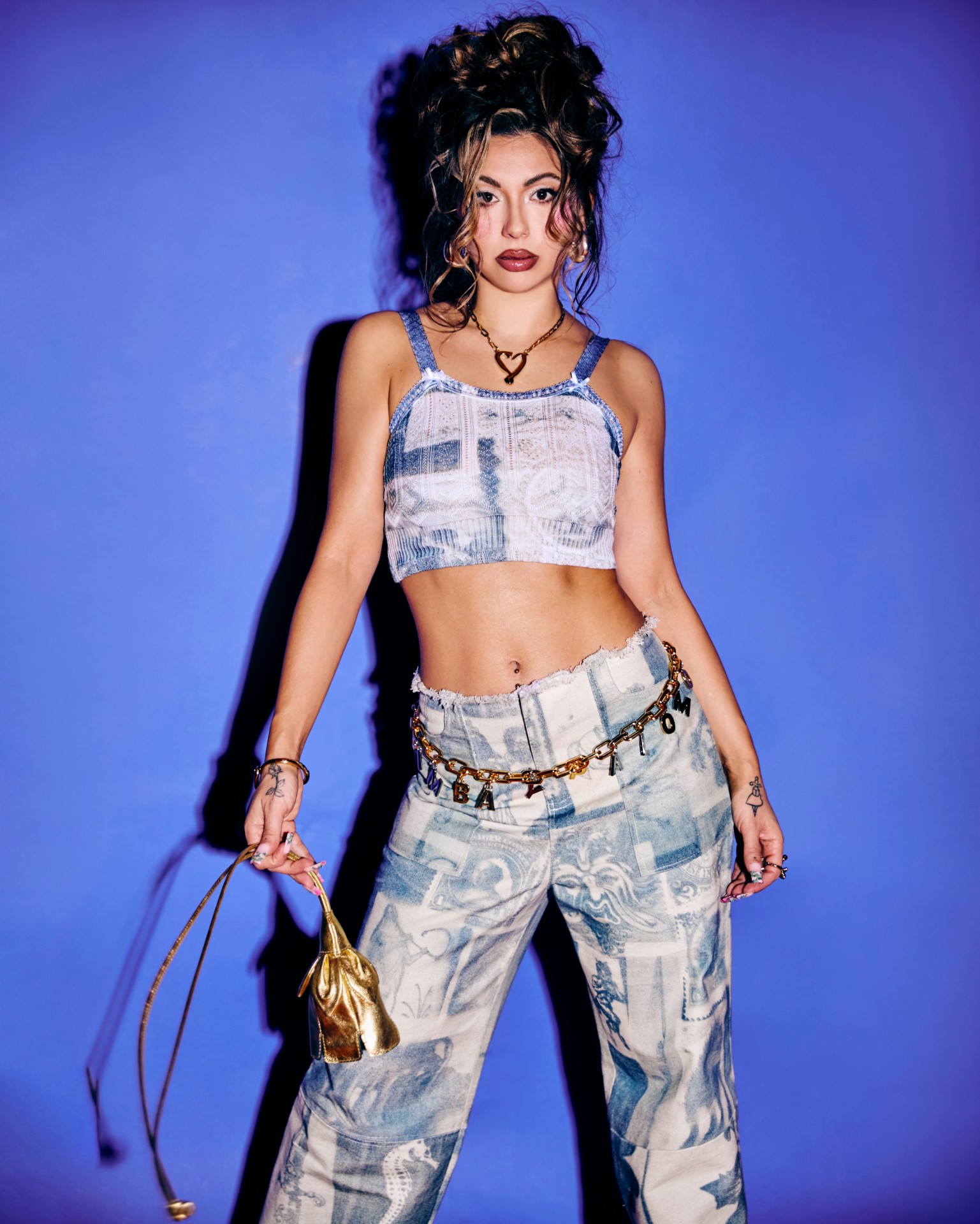
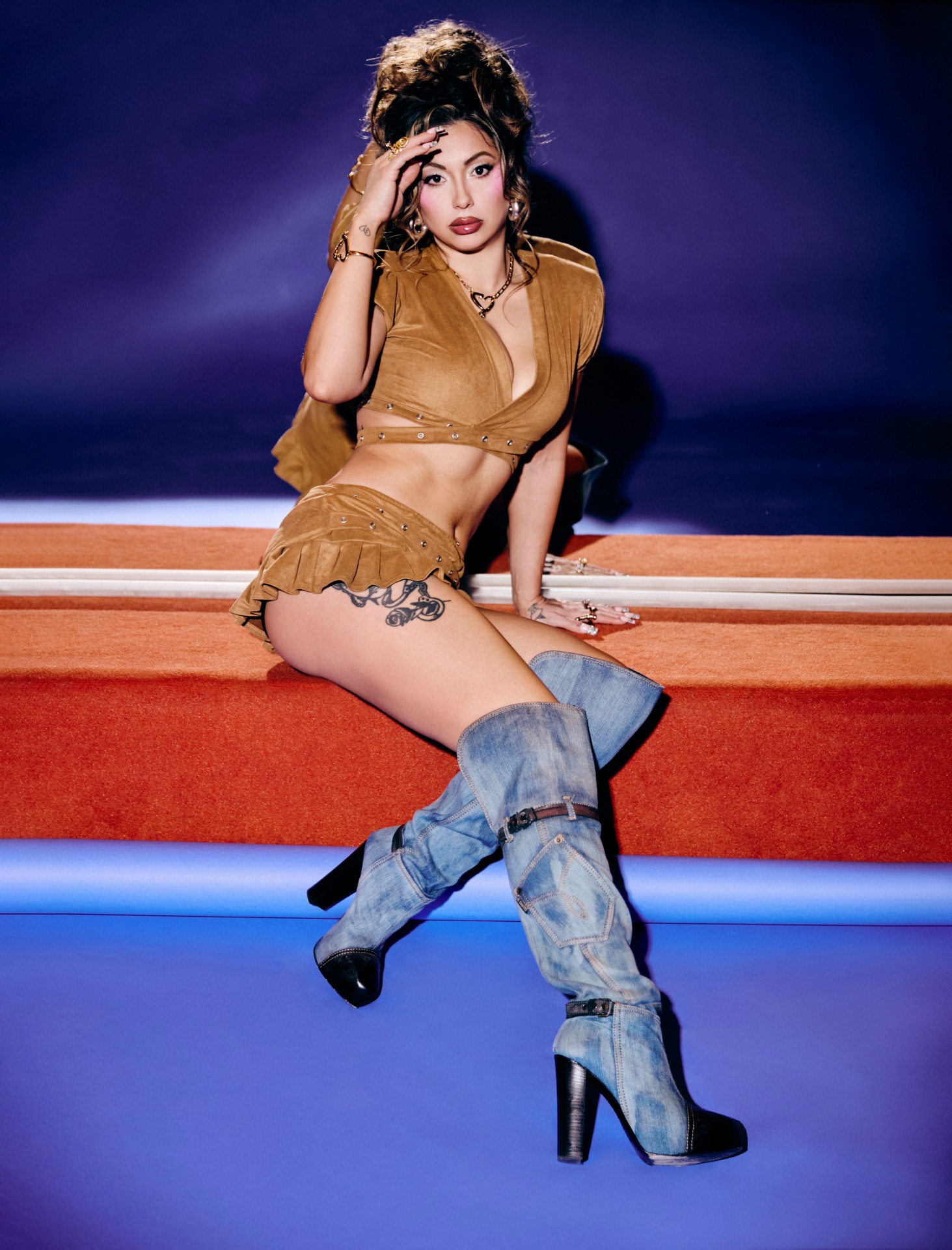
¿Quién es Bea Pelea en tus propias palabras?
Una mujer segura, fuerte, abierta, independiente, sexy y romántica que hace lo que quiere.
Sos de Málaga pero te rodeaste de otras culturas. ¿Cómo influyó esa diversidad en tu identidad artística?
Lo de las raíces hay distintas opiniones, ahora estoy viviendo en Madrid pero Barcelona es mi segunda casa. En general siempre me he rodeado de diferentes culturas y he vivido en distintos lugares. Esto me hace sentir de diferentes sitios a la vez por lo que a la hora de componer o crear un proyecto fluyo e innovo y me siento cómoda con diferentes sonidos o maneras de expresarme de manera natural.
Tu papá, Pablo Bicho, fue un músico clave en la escena rockera coruñesa y luego en la música latina. ¿Cómo influyó en tu relación con la música?
No crecí con él. Lo veía poco pero cuando estaba con él siempre lo recuerdo tocando, ensayando o trabajando en relación a la música. Yo amo la música pero es algo que llevo dentro, no creo que él me haya influido tanto, excepto genéticamente si es que influye. Respecto a sus gustos musicales son muy parecidos a los míos, no respecto al reggaetón que a él le pilla un poco con otra generación, aunque es capaz de apreciar y le interesa también. Pero sí sobre todo con la salsa y el flamenco que nos gusta mucho a los dos.
¿Cómo era la Bea adolescente?
La Bea adolescente era fuerte, valiente y sensible como mi madre. Me obsesionaba poder estudiar y conseguir un futuro en el cual estar bien y tranquila, esa etapa marcó mi vida y por consiguiente supongo que mi carrera. Me dio cosas buenas y no tan buenas respecto a mi carácter que se reflejan en cómo trabajo y en cómo me siento de las cosas. Actualmente estoy dejando de hacerlo porque no siento en otro punto ahora mismo, tanto personalmente y tanto en cómo siento mi carrera y cómo quiero enfocarla ahora.
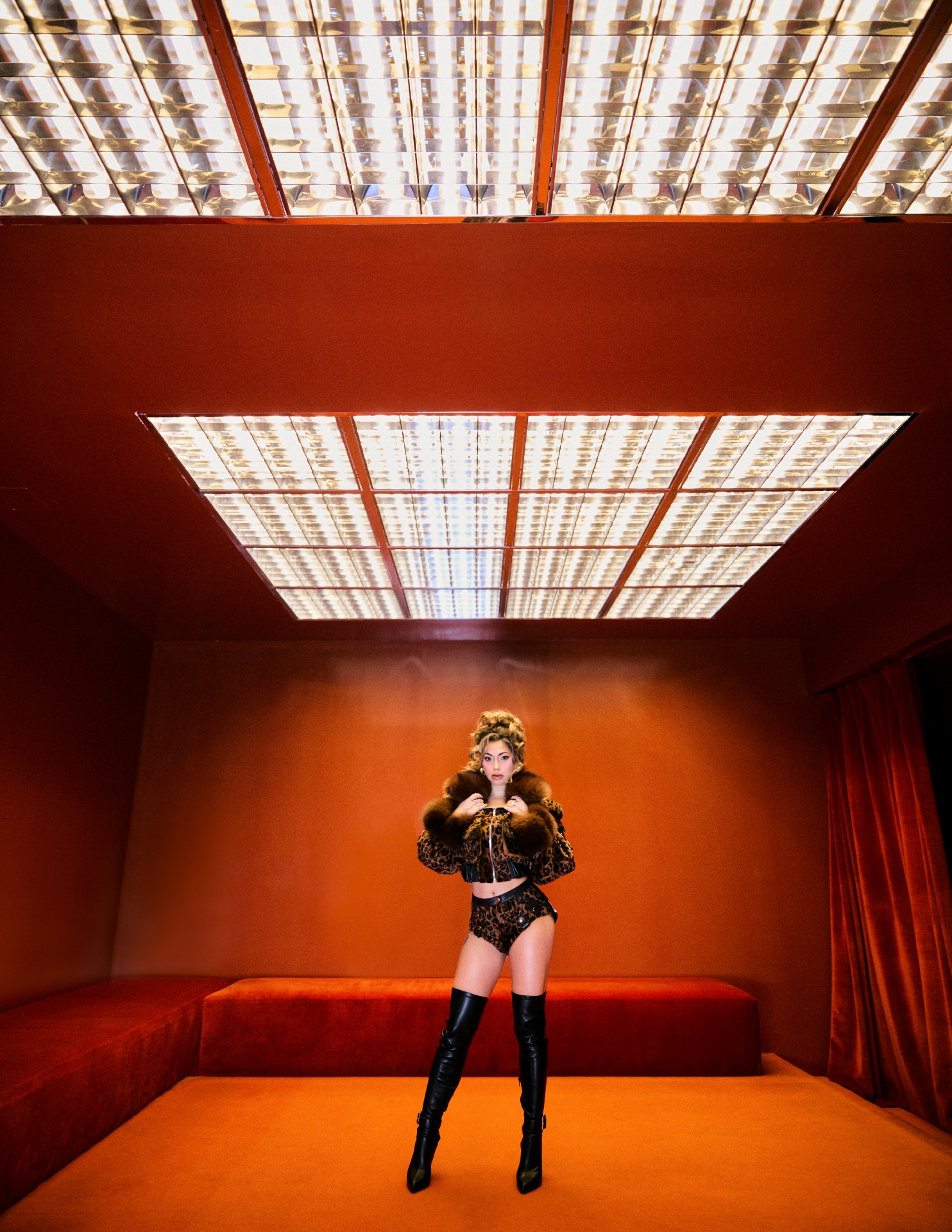
Your music blends reggaetón, trap, and other urban rhythms with a unique identity. How would you describe your sound?
Right now, I love experimenting with different styles. I was getting a bit bored with reggaetón when it started becoming the new pop, but lately, I’ve gone back to its roots, and that’s where I truly feel like myself.
You started with a more underground approach, and now you’re performing on bigger stages. How was that transition?
Actually, the first time I performed as Bea Pelea was at Madrid Pride in 2017, in Plaza del Sol, in front of around 15,000 people, even though I had only released two songs. It was crazy. I’ve always felt like I’m in between worlds, in that sense. I might have songs playing on TV or Netflix, but people don’t usually stop me on the street for photos. My growth process was slowed down by COVID, and now I’m picking things up again. Honestly, I prefer it this way. I’ve always had a lot of respect for fame and money. At some point, I felt like music had given me way more than I was giving back. I was handling my own career and doing shows, but I wasn’t making enough time to actually create music, which is the most important thing. I needed to spend hours in the studio, composing and reconnecting with music on that level. So I took a long break from performing to focus on recording and learning. Now, I feel much better and more prepared.
Do you prefer writing in advance or improvising in the studio?
It depends. I started by recording myself at home. Actually, I recorded almost my entire first mixtape that way. I’m a very shy person, so recording with people feels like opening my heart to them, and I’m quite private. So I’d say I prefer writing in advance, also because I write whenever inspiration hits, and I’m not always in the studio. But when I work with producers or artists I trust, I enjoy creating from scratch in the studio. Lately, I’ve been getting more comfortable with that.
Being a woman in reggaetón often means challenging stereotypes. Have you faced any barriers?
Honestly, I haven’t felt those barriers too much, partly because I wasn’t looking for them, and partly because it’s important to have a clear identity in such a male-dominated scene. In Spain, there were already other women making music, expressing themselves freely—whether sexy or not, explicit or not—without fear of judgment. Artists like Somadamantina, Ms Nina, La Zowi, Bad Gyal, and before them, La Mala.
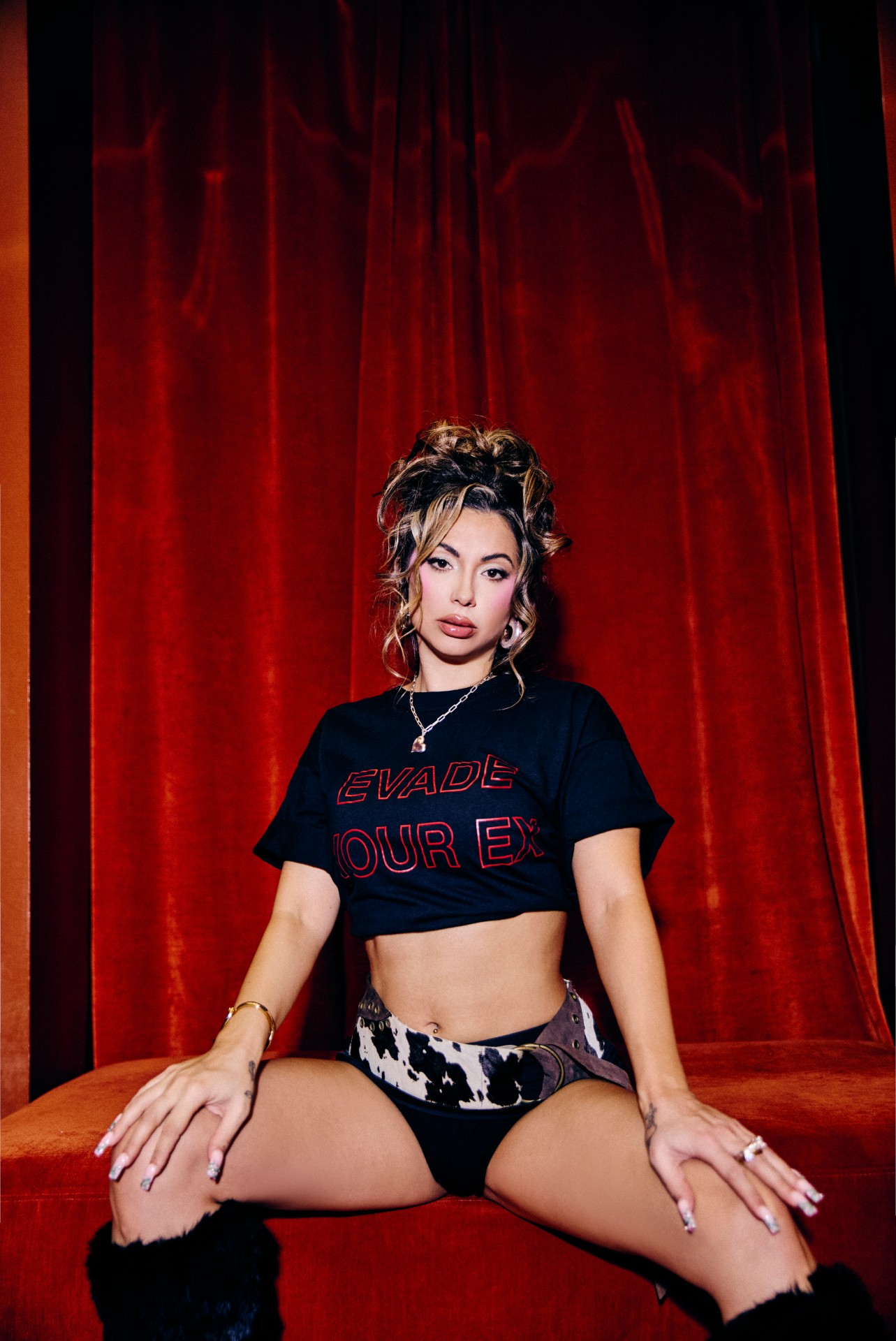
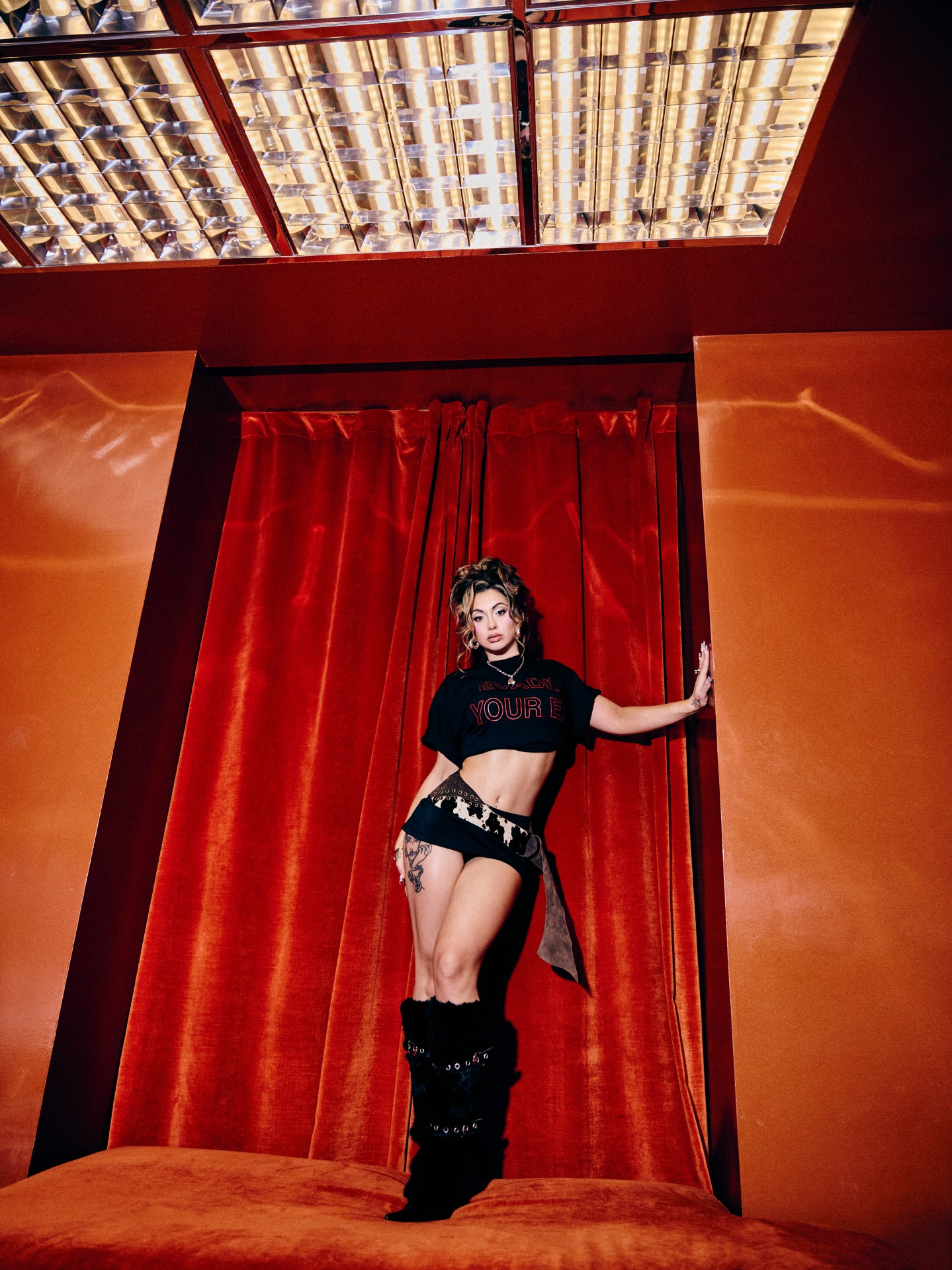
Tu música fusiona reggaetón, trap y otros ritmos urbanos con una identidad muy personal. ¿Cómo describirías tu sonido?
A día de hoy me gusta probar muchas cosas diferentes y tengo unas ganas de experimentar con otros sonidos, estaba un poco aburrida del reggaetón desde que se convirtió como en el nuevo pop pero ahora he vuelto a los orígenes y el reggaetón realmente es donde soy yo.
Empezaste con una propuesta más under y ahora te movés en escenarios más grandes. ¿Cómo fue ese proceso?
Realmente la primera vez que me subí a cantar como Bea Pelea fue en el Orgullo de 2017 en Plaza del Sol ni se si habrían unas 15.000 personas o más y yo tenía 2 canciones fuera, muy loco. Me he sentido siempre en un punto medio en este sentido, entre los dos lados. Puedo tener canciones sonando en la tele o en Netflix pero no es habitual que me paren por la calle para pedirme una foto. Mi proceso de crecimiento se frenó con el COVID la verdad y ahora estoy volviéndolo a retomar todo, mentalmente lo prefiero así, la fama y el dinero son cosas a las que siempre les he tenido bastante respeto. Hubo un punto en el que sentía que la música me había dado mucho más de lo que yo le daba a ella, llevaba un tiempo llevando yo mi carrera y haciendo bolos y luego no me quedaba tiempo para hacer música que realmente es lo más importante. Necesitaba pasar horas en el estudio, componer y reconectar en ese sentido, estuve un tiempo largo centrada en grabar sin hacer conciertos y en aprender e intentar estar en paz con la música a ese nivel y ahora me siento mucho mejor y más preparada.
¿Sos más de componer con anticipación o improvisar en el estudio?
Depende. Yo empecé grabándome sola en casa de hecho prácticamente toda la primera mixtape la grabé así. Soy una persona muy tímida, me cuesta mucho grabar con gente porque siento que es como abrir el corazón a alguien y soy bastante reservada. Por lo que te diría que me gusta escribir en el momento porque escribo cuando me viene la inspiración y no siempre estoy en el estudio. Con productores o artistas con los que ya tengo confianza sí me gusta crear en el estudio desde cero y en general ahora me estoy subiendo un poco más en ese sentido.
Ser mujer en el reggaetón a veces implica desafiar estereotipos. ¿Tuviste que enfrentar alguna barrera?
Realmente yo no he notado tanto esas barreras. En parte, porque no las iba buscando, en parte porque es importante tener una identidad clara en un sector mayoritariamente de hombres. En España había otras mujeres haciendo música; expresándose de manera genuina —sexy o no y explícita—sin miedo a la mirada de los demás, como Somadamantina, Ms Nina, La Zowi o Badgyal, o anteriormente La Mala.
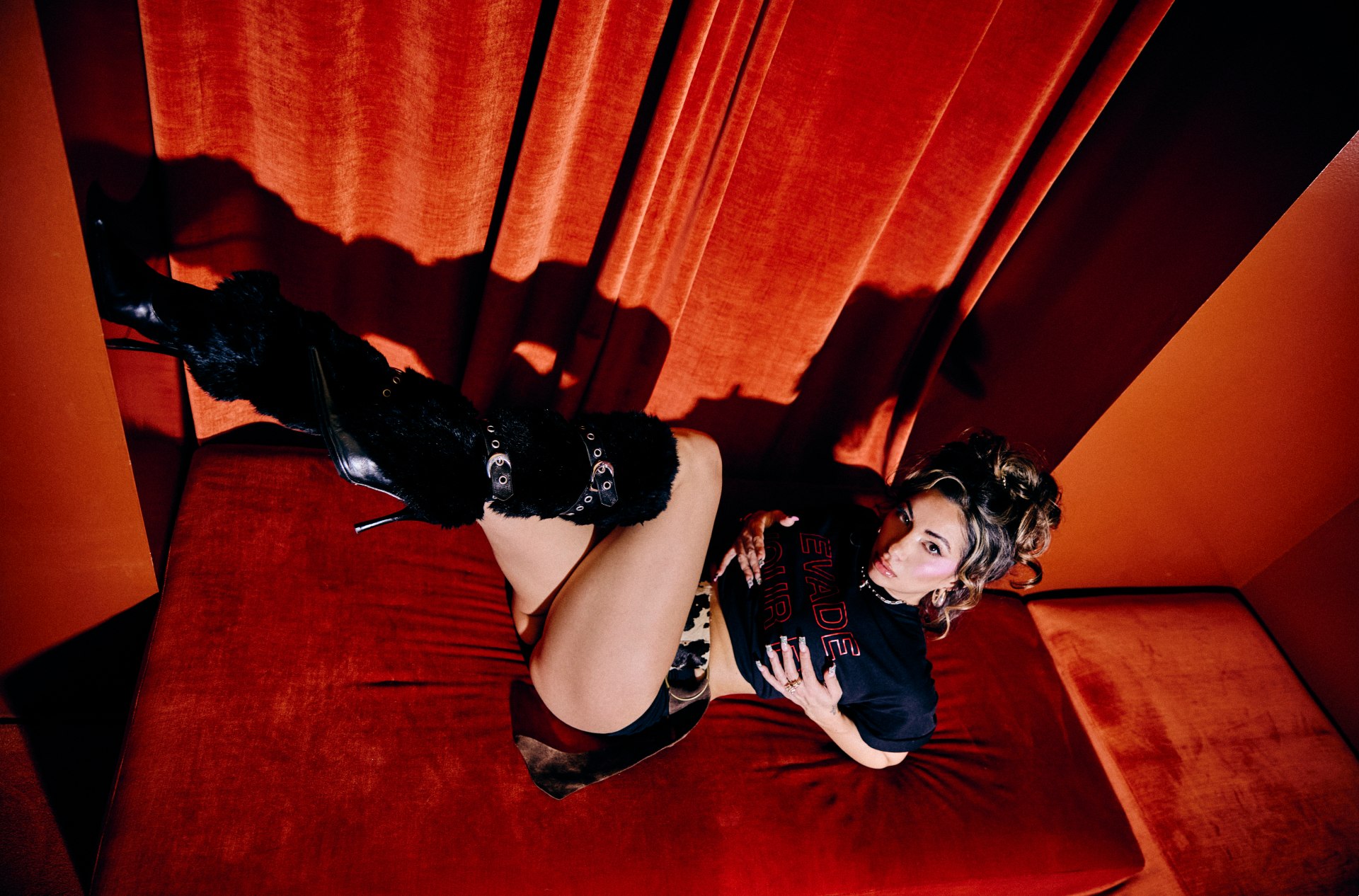
What do you think urban music represents in terms of culture and social change?
Urban music is essentially the evolution of underground genres that emerged in marginalized communities—rap, reggaetón, dancehall, Brazilian funk, and others—being transformed into a more pop-friendly sound, and reaching global mainstream audiences. Hip-hop paved the way and, more recently, reggaetón followed. In this sense, it represents a cultural progress and reflects the blending of different traditions, thanks to immigration, globalization, and more. It also opens doors for young artists from low-income backgrounds who, through their talent, can change their lives and become international stars, something that was much harder before. I think it also plays a role in fighting racism, though classism is usually a bigger issue. Regardless of whether we prefer how urban music sounded in the past, its current mainstream presence is a positive shift overall.
Besides music, what other art forms draw you in?
Literature, dance, and film. My mother is a writer, and writing has saved me so many times when I needed to express myself. Now, I do that through songwriting, but I wouldn’t rule out writing a book one day. I’d love to. Acting fascinates me too. I see it as a bigger challenge, although I’ve done some small projects and really enjoyed them. And dancing. I already dance, but I’d love to take it to a more professional level because I truly love it.
The music industry evolves fast. How have you changed since your first releases?
It’s crazy. It moves too fast. When I started, YouTube and Instagram were leading the charge. Before that, it was SoundCloud and Facebook. Then came the rise of streaming platforms and playlist curation. Now, it’s all about TikTok, and we’re in yet another transition. I don’t know where it’s headed.
Do you measure success by streaming numbers, or is it something else for you?
Success is making music from the heart. It’s when a fan tells me my music helped or accompanied them through something. It shows me I’m fulfilling a purpose. I also see it in being able to support my family while growing, learning, and becoming more professional. It’s also being able to trust that I’m doing things right. And looking back, realizing that I’ve achieved things I once couldn’t even imagine.
¿Qué creés que representa la música urbana en términos de cultura y cambio social?
Música urbana quizás se puede entender como el paso que han dado todos esos géneros underground, que en sus inicios nacen en relación a las clases más bajas, en los barrios de diferentes partes del mundo —rap, reggaetón, dancehall, funk brasileño—, al llevarlos a un sonido más pop y que suenan en la radio a nivel mundial, sobre todo como ha sido el caso del hip hop desde hace relativamente poco, el reggaetón. En este sentido, representa un avance para la cultura y un reflejo de la mezcla de diferentes tradiciones, que, gracias a la inmigración y a otros factores como la globalización, el internet, entre otros. A la par le da la oportunidad a jóvenes artistas que vienen del barrio sin recursos hoy pueden cambiar lo que iba a ser su futuro convirtiéndose en un artista internacional gracias a su talento. Eso es algo que antes era mucho más difícil. Creo que también es bueno para combatir el racismo, aunque generalmente la gente es más clasista que racista. Evidentemente, es un cambio positivo.
¿Qué otras formas de arte te atraen?
La literatura, el baile y el cine me llaman mucho también. Mi madre es escritora, escribir es algo que me ha salvado en muchas ocasiones cuando he necesitado expresarme, ahora lo hago componiendo las canciones pero no descarto un día escribir un libro, me gustaría la verdad. La interpretación también me parece increíble pero eso sí sería un reto más complicado pienso, aunque ya he hecho algunos cosas y la verdad que me gustó mucho. Y bailar ya bailo, aunque me gustaría profesionalizarme más en ese sentido porque además amo bailar.
La industria musical cambia rápido. ¿Cómo evolucionaste desde tus primeros lanzamientos hasta ahora?
Es una locura, cambia demasiado rápido. Cuando yo empecé el cambio venía de Youtube e Instagram, antes de eso era Soundcloud y Facebook, luego a tope con los algoritmos de playlist y con la llegada de Spotify y las listas de reproducción, ahora TikTok y estamos ahora en un nuevo cambio que no se sabe a dónde va y si se viene.
¿Medís el éxito por números de reproducciones o por algo más?
Fíjate que el éxito en hacer canciones con el corazón, en cuando un fan me dice que mi música le ha ayudado o acompañado y por mantenerme fiel a mí misma. Me hace sentir que estoy cumpliendo un propósito con cada paso. También el éxito es poder ayudar a mi familia si lo necesitan y profesionalizar. Es algo que yo no me imaginaba lograr y me hace sentir muy bien. También es poder confiar en que estoy haciendo las cosas bien y mirar atrás y alucinar con que llegaría estas cosas que en un punto ni imaginaba alcanzar.
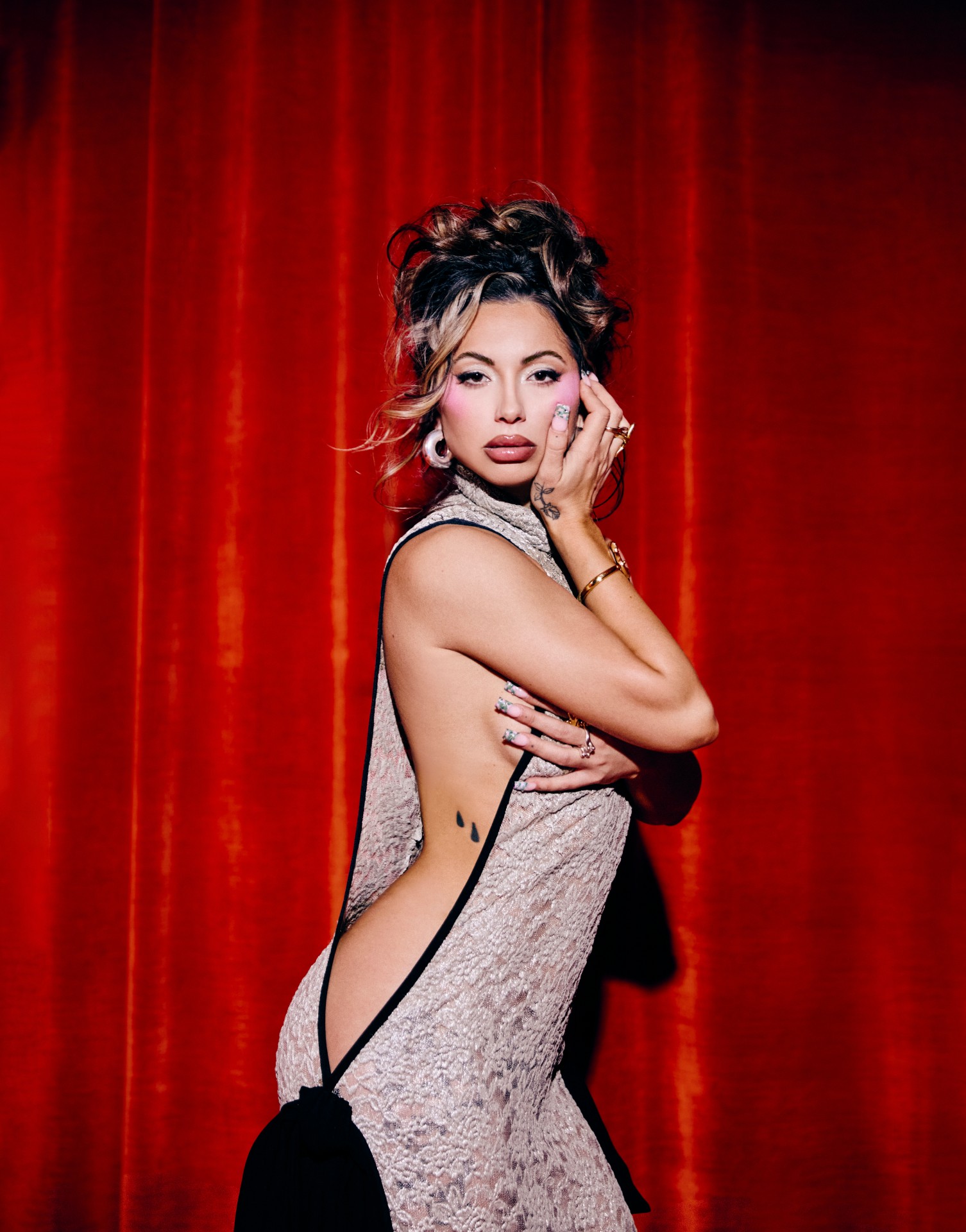

(1).jpg)

